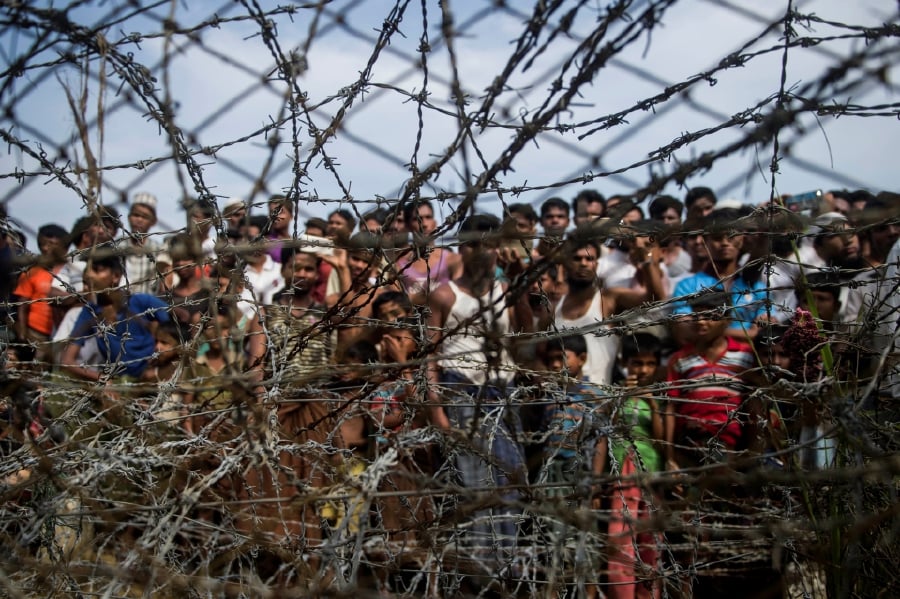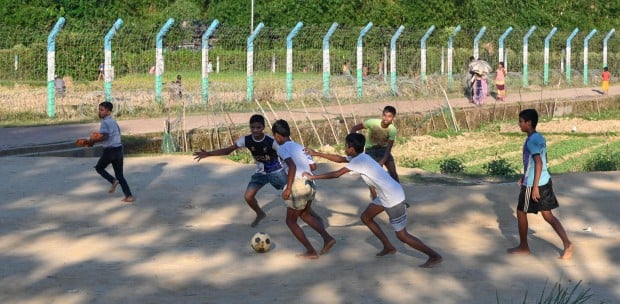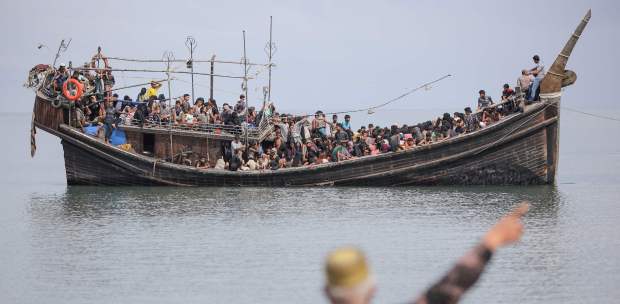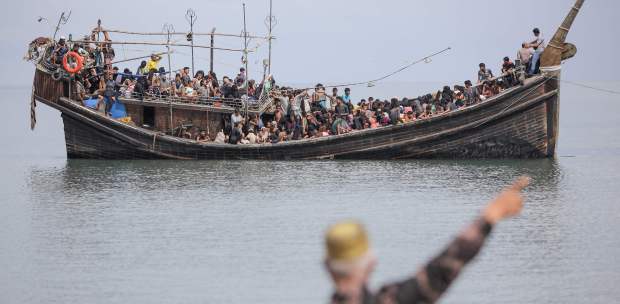At what point do we recognise that Myanmar's creation of a refugee crisis with cascading impacts across Asean constitutes that country's interference in the domestic affairs of member states?
While we have always maintained the core principle of non-interference, even with regards to the Rohingya conflict, we must see that Myanmar's actions have imposed upon us all, and Malaysia in particular, challenging domestic issues that require our government to act for our own peace and stability.
The Tatmadaw junta in Myanmar is, essentially, interfering in the politics of Malaysia.
Because Malaysia upholds the Myanmarese citizenship of the Rohingya and their unalienable right to return to their home country, we do not have a legal framework in categorising them as refugees.
Our approach is for the Rohingya to be restored their citizenship and to allow them to return to their home country, not to regard the Rohingya as permanently dispossessed and stateless.
This has made the situation for them extremely blurry in Malaysia regarding their status, rights and responsibilities.
While this is something that we need to address and our legislators are going to have to hammer out clearer, more effective protocols for handling the influx of Rohingya fleeing genocide in Myanmar, this issue is a domestic political problem caused by the military of a foreign country — and this is unacceptable.
The horrific incident on April 20 at the temporary immigration detention centre in Relau, Bandar Baharu in Kedah, highlights the extent to which Myanmar's policies have intruded upon the security and stability of Malaysia.
Six Rohingya out of the total 527 illegal immigrants who escaped the Immigration depot died when they were hit by a vehicle while dashing across a highway.
Undoubtedly, we have failed to manage the challenges posed by the refugee crisis.
We need to clarify the position of the Rohingya in our country and end their state of legal limbo but this is not a crisis of our making.
It has been imposed upon us and the Myanmar junta must be held responsible.
The Asean guiding principle of non-interference is indispensable — it safeguards the sovereignty of every member state and ensures that no individual nation or a collection of nations with greater power and influence can exert dominance over another.
I do not support annulling this principle but rather broadening its meaning.
When any member state implements policies that cause negative spillover consequences upon other Asean members, this should be regarded as a form of interference and a violation of the principle.
The Tatmadaw has deliberately, calculatedly and relentlessly driven the Rohingya out of their land, knowing that this would flood Asean member states with refugees, thereby imposing upon us complex legal, political and economic problems that our governments would be forced to address.
Malaysian non-governmental organisations and civil societies have been grappling with this dilemma for years now, as are our officials.
The issue of the Rohingya has become a divisive topic in our society, particularly over the course of the pandemic, as we struggle to adopt approaches that are humane and fair to the refugees and, at the same time, not detrimental to the rights and opportunities of our citizens.
This dilemma arguably reached the boiling point following the detention centre melee in Kedah.
To me, the April 20 incident does not represent the shortcomings of the Malaysian government's policy towards the Rohingya, but instead the spreading of the chaos created by the policies of Myanmar.
The military regime in Naypyidaw makes decisions that reverberate throughout the region and interfere with the domestic tranquillity of Malaysia.
For many decades, Malaysian non-governemntal organisations have dedicated resources to help the Rohingyas whose United Nations High Commissioner for Refugees cards do not entitle them to work in this country.
We have proposed plans for temporary measures to facilitate better living conditions for
them.
But ultimately, we must recognise that no permanent solution to problems created by another country's policies.
The Rohingya refugee crisis is the fault of only the Myanmar regime and any stopgap measures to manage the situation only helps to divert accountability for that regime which, in turn, guarantees the continuation of the crisis.
For too long the Asean non-interference principle has been invoked to justify inaction against Myanmar for the genocide of the Rohingya.
But, it seems to me that it is time for us to realise that action is justified precisely on the grounds of non-interference because Myanmar's policies have been disrupting countries like Malaysia year after year.
And this cannot be allowed to continue.





